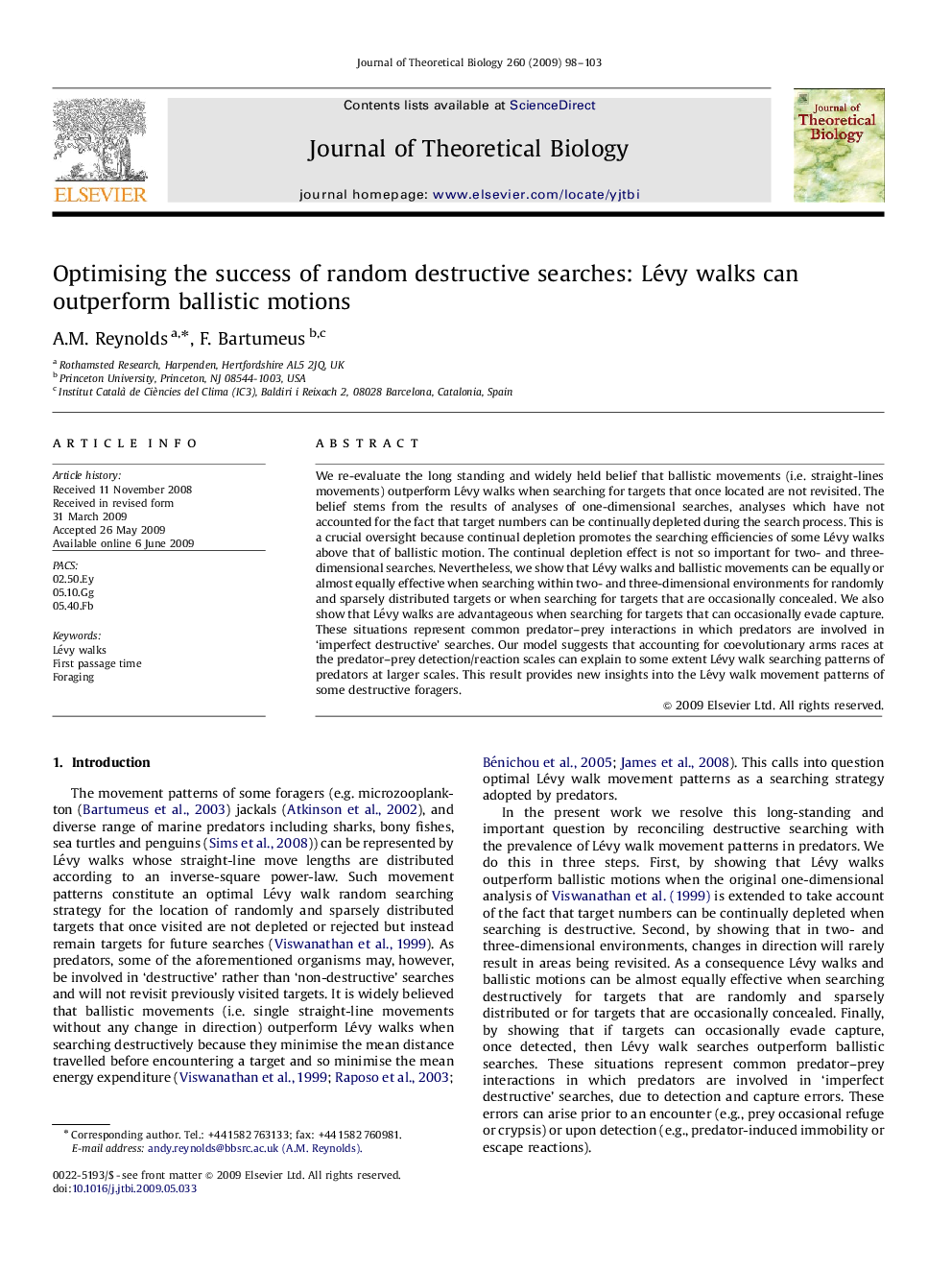| کد مقاله | کد نشریه | سال انتشار | مقاله انگلیسی | نسخه تمام متن |
|---|---|---|---|---|
| 4498018 | 1318961 | 2009 | 6 صفحه PDF | دانلود رایگان |

We re-evaluate the long standing and widely held belief that ballistic movements (i.e. straight-lines movements) outperform Lévy walks when searching for targets that once located are not revisited. The belief stems from the results of analyses of one-dimensional searches, analyses which have not accounted for the fact that target numbers can be continually depleted during the search process. This is a crucial oversight because continual depletion promotes the searching efficiencies of some Lévy walks above that of ballistic motion. The continual depletion effect is not so important for two- and three-dimensional searches. Nevertheless, we show that Lévy walks and ballistic movements can be equally or almost equally effective when searching within two- and three-dimensional environments for randomly and sparsely distributed targets or when searching for targets that are occasionally concealed. We also show that Lévy walks are advantageous when searching for targets that can occasionally evade capture. These situations represent common predator–prey interactions in which predators are involved in ‘imperfect destructive’ searches. Our model suggests that accounting for coevolutionary arms races at the predator–prey detection/reaction scales can explain to some extent Lévy walk searching patterns of predators at larger scales. This result provides new insights into the Lévy walk movement patterns of some destructive foragers.
Journal: Journal of Theoretical Biology - Volume 260, Issue 1, 7 September 2009, Pages 98–103